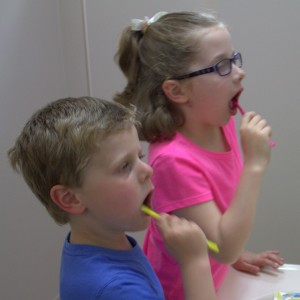 Leading up to OT week we are looking at ways that OTs can help you and your child. One way is with support for ADLs "activities of daily living".
Leading up to OT week we are looking at ways that OTs can help you and your child. One way is with support for ADLs "activities of daily living".
Activities of Daily Living (ADLs) describe the tasks or activities that people normally complete as part of their everyday lives. Occupational therapists are interested in a person’s functional performance in these activities; or how well they are able to do these activities on their own. Some children need support to develop the skills needed for these activities and occupational therapists can help.
Your child’s performance of ADLs can be affected by many factors, such as age, mood, mobility, illness and disability. Using age as an example, elderly people start to require more assistance as they lose their mobility and skills, and perhaps start to experience things such as strokes or dementia. A child often requires help from adults with ADLs because they have not yet developed all the skills to complete them alone.
There are ‘norms’ within which we expect children to achieve certain skills, such as walking, using a spoon or cup, toilet training and being able to manage tasks like buttons or shoelaces. If children have not developed these skills within average time frames, then we consider that they have a delay, and start looking at ways to assist their skill development.
Activities of Daily Living can be divided into two sub-categories: Basic ADLs and Instrumental ADLs.
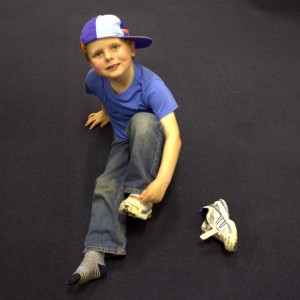 Basic ADLs describe those that are everyday self-care tasks common to all people, although it is important to note that how a person wants or is expected to complete ADLs is individual to their environment, culture and beliefs. The basic ADLs include:
Basic ADLs describe those that are everyday self-care tasks common to all people, although it is important to note that how a person wants or is expected to complete ADLs is individual to their environment, culture and beliefs. The basic ADLs include:
- Bathing/Showering
- Dressing
- Personal Hygiene and grooming (brushing hair, brushing teeth)
- Eating/Feeding
- Toileting
- Sleeping
- Mobility (walking, transferring)
Instrumental ADLs are those that are not vital for daily functioning, but which enable a person to live and function within their home and community. Some broad examples of these can include:
- Shopping
- Housework
- Managing money
At Talking Matters we are focused specifically on children, so the Instrumental ADLs that we are interested in include:
- Communication
- Play (a child’s main ‘occupation’)
- Accessing community services such as childcare, kindergarten, school, sports, church and so on.
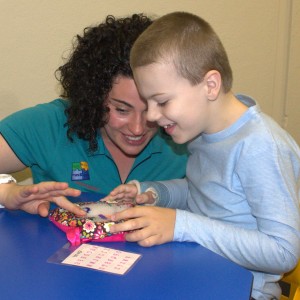 Assessment of ADLs is useful because occupational therapists are often able to work with clients to develop strategies which will help maximise independent functioning. At Talking Matters, our occupational therapists will collect information about your child’s ADL skills as part of the initial assessment process.
Assessment of ADLs is useful because occupational therapists are often able to work with clients to develop strategies which will help maximise independent functioning. At Talking Matters, our occupational therapists will collect information about your child’s ADL skills as part of the initial assessment process.
What skills do I expect from my child? Here is a rough guide to the ages at which children develop activities of daily living. If your child is not able to do this tasks it may be useful to speak to an OT.
At 6 to 12 months children can:
- cooperate with an adult dressing then by holding out arms and legs
- eat cereal or pureed baby food from a spoon held by an adult
- try to hold their own bottle
- hold and suck on a bsicuit or rusk
- Hold and suck or bang a spoon
- begin to self feed soft finger foods
 At 12 to 18 months children can:
At 12 to 18 months children can:
- pulls off their shoes and socks
- push their arms through sleeves and legs through pants
- copy parents brushing teeth
- self feed soft finger foods
- dip a spoon in food and bring it to their mouth with spills
- hold and drinks from a cup
At 18 to 24 months children can:
- remove clothes without buttons or zips
- remove shoes without laces or buckles
- help pull pants down
- find armholes in shirts
- brush thier teeth with help
- scoop food with a spoon and brings it to their mouth
- drink from a cup with one hand
- eat a range of foods though not all meats as yet
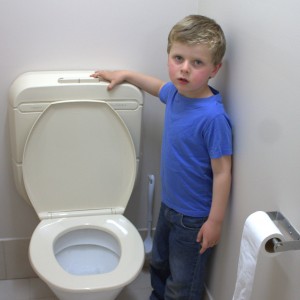 At 2 to 3 years children can:
At 2 to 3 years children can:
- take off socks, jackets, shorts, shoes, and pants but not tight clothes
- put on socks, coats, and shirts
- unbuttons large buttons
- sits on the toilet with adult help
- develop daytime toilet training with some accidents
- begin to wash their hands
- try ot wipe after the toilet with help
- eat a meal with a spoon or fork with few spills
- eat a range of foods with different textures
At 3 to 5 years children can:
- put on shoes without laces or buckles
- begin to manage zips and buttons
- begin to brushing their teeth and wipe their nose
- comb and brush their hair
- wipes themselves after the toilet
- have few toileting accidents
- get themselves simple snacks
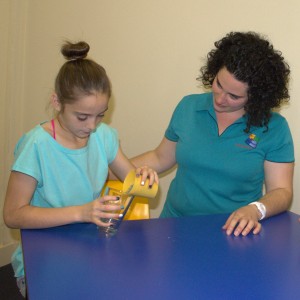 Strategies that your OT might use to help maximise your child’s performance in ADLs could include:
Strategies that your OT might use to help maximise your child’s performance in ADLs could include:
- simplifying or modifying tasks
- breaking tasks into achievable steps (task analysis)
- helping to identify a gradual process for teaching skills (grading)
- helping to address any sensory or behavioural issues that are impacting on a task
- recommending equipment or tools (this could be as simple as a special cup/spoon for feeding or specific chairs/strollers for mobility)
- introducing a rewards system to encourage motivation and independence
- implementing supports such as visual cues/schedules or help at home care
- accessing funding to purchase necessary equipment (identifying funding options and writing supporting documentation, for example the CAPS scheme for difficulties with continence in people over 5 years of age)
- assisting caregivers (including teachers or childcare staff) to develop and implement strategies in their environment
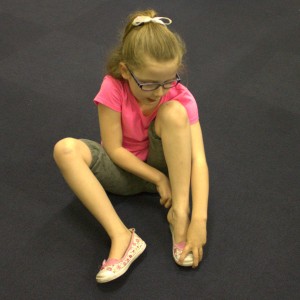 If you are concerned about your child's activities of daily living an occupational therapist is the person to see for advice. An occupational therapist can assess your child's skills and advise you on what to do to help your child's development. For more information about occupational therapy check Our website. There are also lots of great activity ideas on the Talking Matters Pinterest page.
If you are concerned about your child's activities of daily living an occupational therapist is the person to see for advice. An occupational therapist can assess your child's skills and advise you on what to do to help your child's development. For more information about occupational therapy check Our website. There are also lots of great activity ideas on the Talking Matters Pinterest page.
If you are a teacher or child care worker in Adelaide you may be interested in our workshop "occupational therapy in the classroom" coming up soon. Click here for details.
Our website now has lots of occupational therapy information sheets to download on motor skills, sensory integration and daily living skills. Check it out here!
If you liked this post you may like:
The importance of routine
Tooth brushing
Getting dressed
Toilet training
Sleep
Related Blog Posts
If you liked this post you may also like:
Packing the School Bag - Supporting Your Child's Development
A Good Night's Sleep
Mastering Buttons and Fasteners
Work 50/50 with ASD



